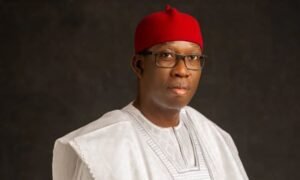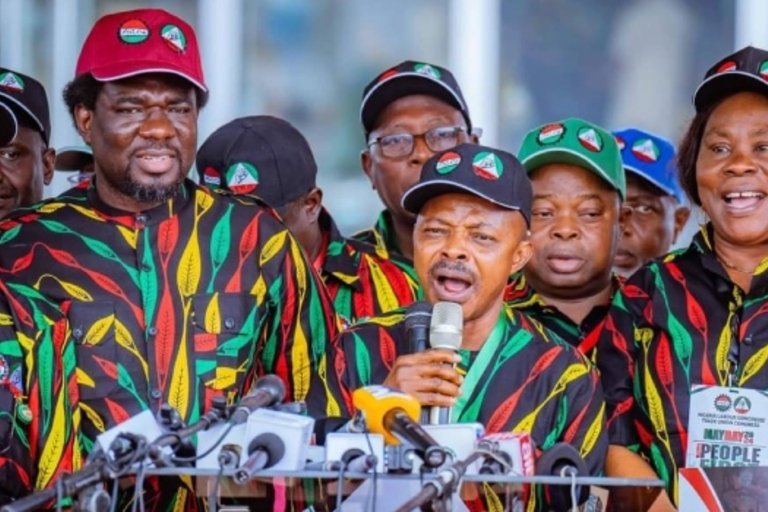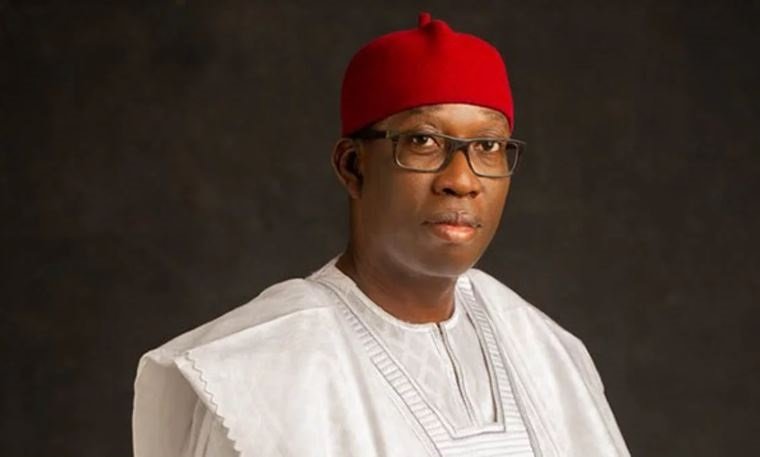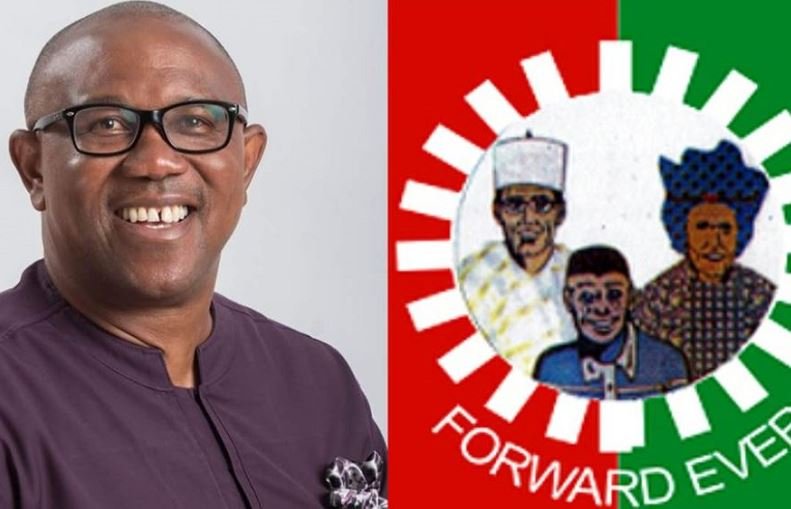The Nigeria Labour Congress (NLC) has suspended its planned nationwide protest against the recent 50 percent hike in telecom tariffs approved by the Federal Government.
The workers union called off the planned rally for Tuesday (today) after meeting with government representatives at the Office of the Secretary to the Government of the Federation in Abuja on Monday.
The Nigerian Communications Commission, the telecom regulator, defended the 50% pricing rise, citing growing operational costs caused by inflation, foreign exchange volatility, and greater energy expenses.
In a statement, the regulator stated that the change was in accordance with its responsibility under the Nigerian Communications Act of 2003 to safeguard the financial viability of the telecom sector.
However, the NLC opposed the pricing hike and sought a 5% cut, threatening a nationwide protest if its demands were not granted.
It slammed the raise as insensitive and unreasonable, claiming that it will place an additional burden on Nigerian consumers.
Following the National Administrative Council meeting of the NLC, the union’s president, Joe Ajaero, reaffirmed his demand for a large reduction.
He said, “After extensive discussions, the following resolutions were reached: NAC-in-session totally rejects the 50 percent telecom tariff hike, which it considers too harsh for citizens. It, therefore, strongly condemns the Nigerian Communications Commission’s decision to approve the increase.”
“This decision is insensitive, unjustifiable, and a direct attack on Nigerian workers and the general populace, who are already suffering under worsening economic hardship caused by government policies beyond their control.”
The NLC called on Nigerians to prepare for a nationwide boycott of telecommunication services in protest against the increase.
Despite the NLC’s pressure, telecom operators remained firm that the current adjustment was necessary to maintain service quality and support network expansion in an increasingly challenging economic environment.
They refused to negotiate with organised labour on the tariff rise, stating that no reductions would be made despite the union threat.
Gbenga Adebayo, Chairman of the Association of Licensed Telecommunications Operators of Nigeria, said that the agreed increase is critical to maintaining telecom operations amidst rising costs.
“This increase is a lifeline that enables us to survive. Anything lower would be like giving someone who needs 100 litres of oxygen only a fraction—barely enough to keep them alive but insufficient for long-term survival,” he asserted.
To guarantee maximum impact, the NLC organised a protest that included energy workers, airline workers, and civil society groups.
However, following the Monday meeting, the NLC decided to halt the demonstration until further deliberation.
Speaking to the press following the meeting, NLC President Ajaero stated that the government agreed to form a bigger committee to study the entire tariff structure.
According to him, the committee will be made up of five representatives from each side and is anticipated to submit its conclusions within two weeks.
Ajaero stated, “We emphasised that the NLC is the largest organisation in Africa, and no stakeholder consultation can exclude us and still stand. On that basis, they agreed to form a broader committee to ensure a fair and inclusive agreement to look at the entire tariff structure as a model to come out with a realistic and all-inclusive agreement.
“So, the committee will be made up of five representatives from both sides and is expected to come out with a result after two weeks. That will determine the next line of action and the process of engagement.
He went on to say that the union’s future moves, such as rallies, boycotts, and service withdrawals, will be determined by the committee’s findings.
“The symbolic action of submitting the letters tomorrow (today) will be put on hold until the outcome of such a committee. The outcome of such a committee is what will determine our next line of action in terms of protest, in terms of boycott, and in terms of even withdrawal of services, which are the three issues we put online,” he explained.
While the planned symbolic submission of protest letters has been postponed, Ajaero stated that the NLC is still concerned about other pressing economic issues, such as high electricity tariffs and burdensome worker taxes.
“We have also expressed our displeasure over the high electricity tariff and the unbearable tax regime, which is killing workers. These remain unresolved issues that must be addressed,” the labour leader said.
Mohammed Idris, the Minister of Information and National Orientation, said the NCC raised the tariff following a study.
He stated that the NLC agreed to look at the study to come up with its resolutions, adding that a committee of five representatives each from both sides had been instituted.
The minister said, “The crux of the matter is that there is already a study that was conducted by the NCC that led them to arrive at this 50 percent increase. Now, we are discussing this with Labour.
“Labour has agreed that they will look at that study, and then a small committee has been set up to look at that study once again and come up with a final resolution for the consideration of government and Labour in about two weeks.
“So, the summary of it is that the Nigeria Labour Congress and the delegation of the Federal Government have set up a committee of five each.
“We are going to meet here continuously for the next two weeks, and at the end of the second week, we will now come up with a recommendation that we will give to the government and the organised labour for final consideration.
“Both the organised labour, the NLC particularly, and the government people have sat down here and have agreed on this position.
“So, there won’t be any protest tomorrow (today) by the Nigeria Labour Congress, and there will be some form of report that will come up in about two weeks from now to consider the study and other considerations by both parties.”











